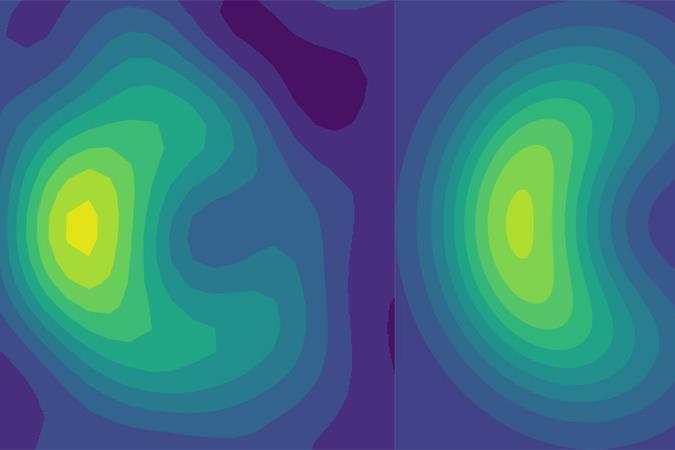Quantum computing has provided new insights into a fundamental aspect of photochemical reactions that has previously proven difficult to study. The findings could improve scientists’ understanding of light-driven processes such as photosynthesis, smog formation and ozone destruction.
Photochemical processes occur when atomic nuclei and their electrons take on different configurations after absorbing a photon. Some of these reactions are guided by a quantum phenomenon called a conical intersection, where the potential energy surfaces that describe a molecule in its ground state and in its excited state converge. In these situations, quantum mechanical interference can prevent certain molecular transformations from taking place – a constraint known as a geometric phase. This limits the path that the reaction can take and affects the reaction outcome. The geometric phase has been known about since the 1950s, but due to the femtosecond timescales involved, it has never been directly observed in a molecular system.
